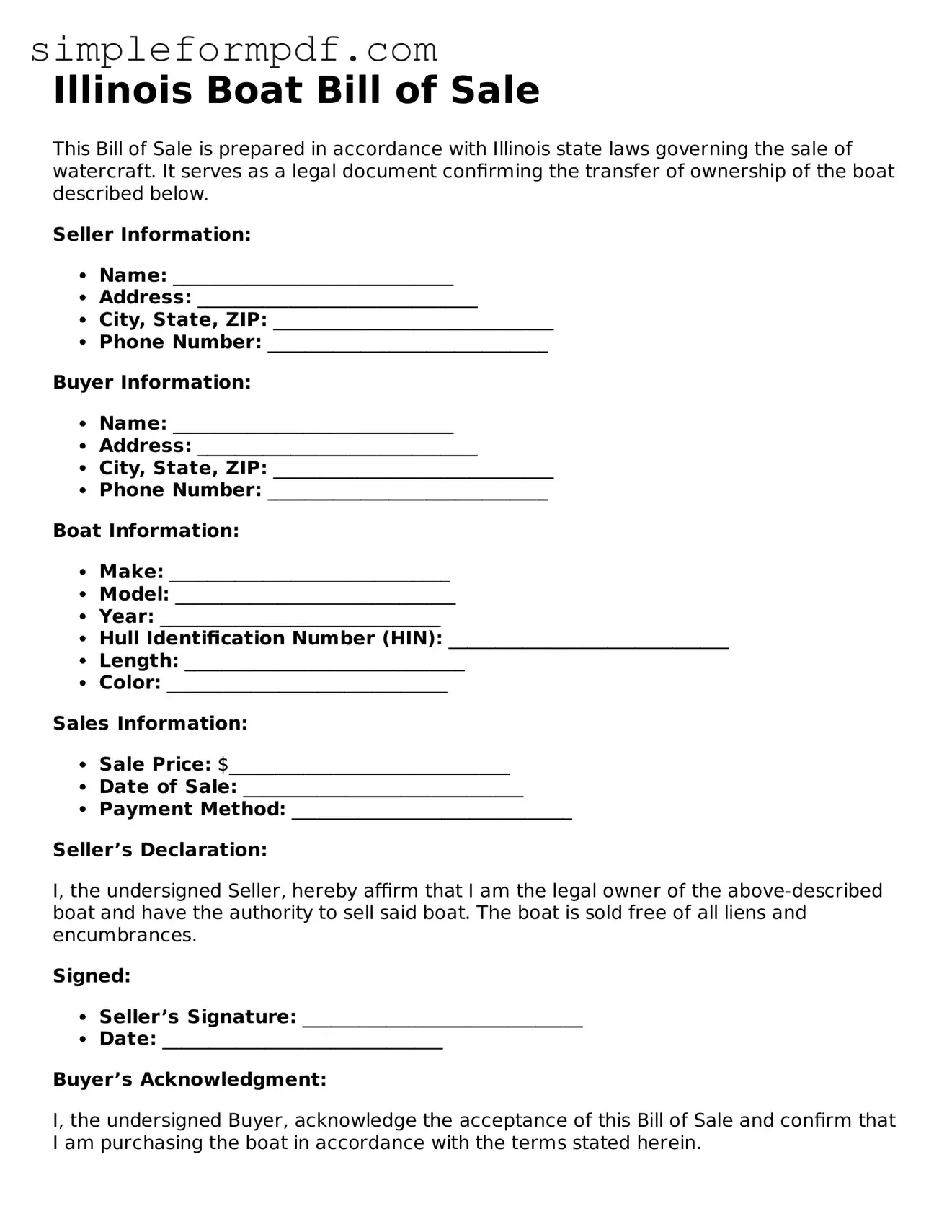Free Boat Bill of Sale Form for the State of Illinois
The Illinois Boat Bill of Sale form is a legal document that serves as proof of the sale and transfer of ownership of a boat. This form outlines essential details about the transaction, including the buyer and seller's information, the boat's specifications, and the sale price. Understanding its importance can streamline the process of buying or selling a boat in Illinois.
To ensure a smooth transaction, fill out the form by clicking the button below.
Launch Editor

Free Boat Bill of Sale Form for the State of Illinois
Launch Editor
Need instant form completion?
Finish Boat Bill of Sale online in just a few minutes.
Launch Editor
or
Download PDF
